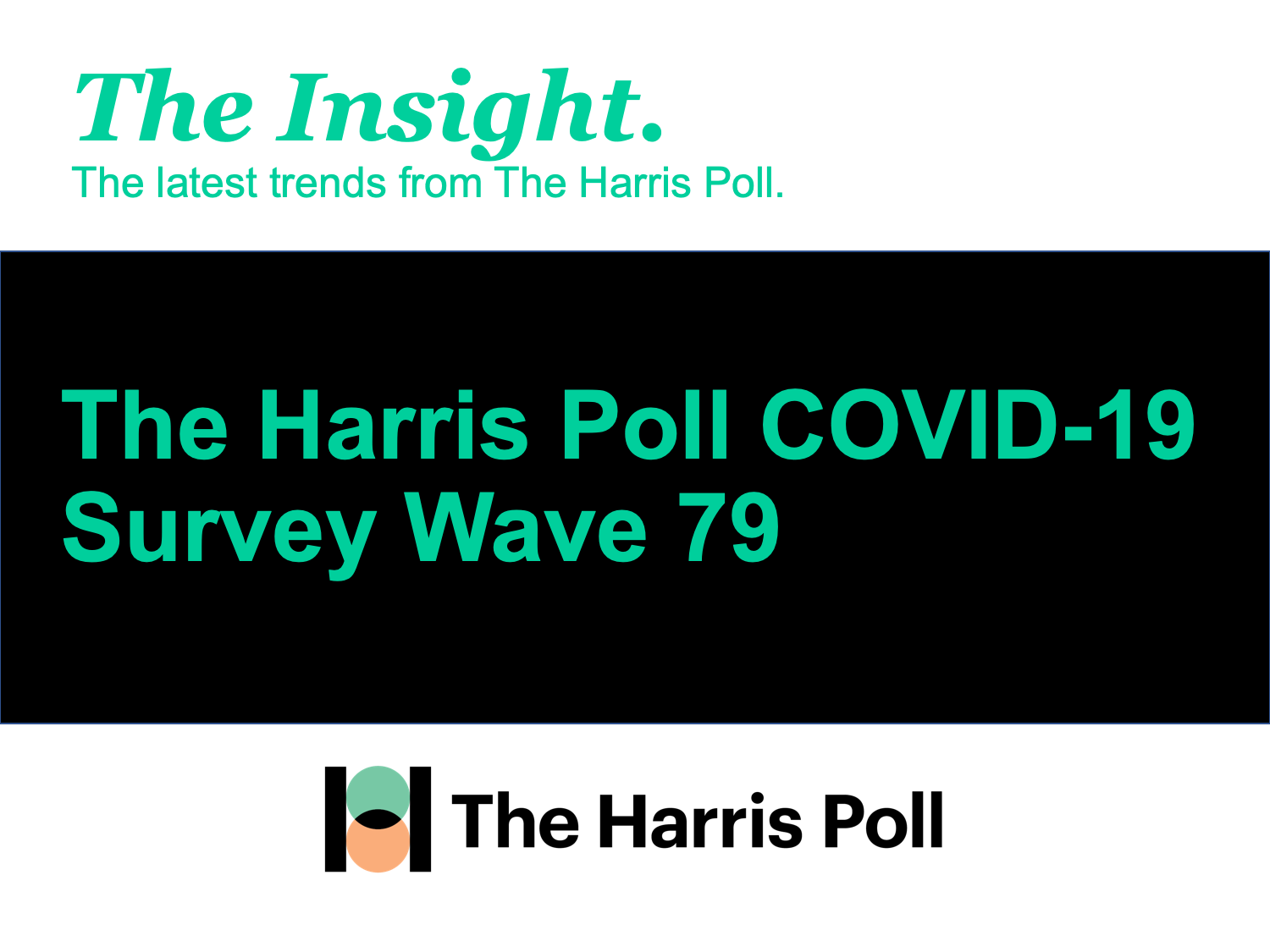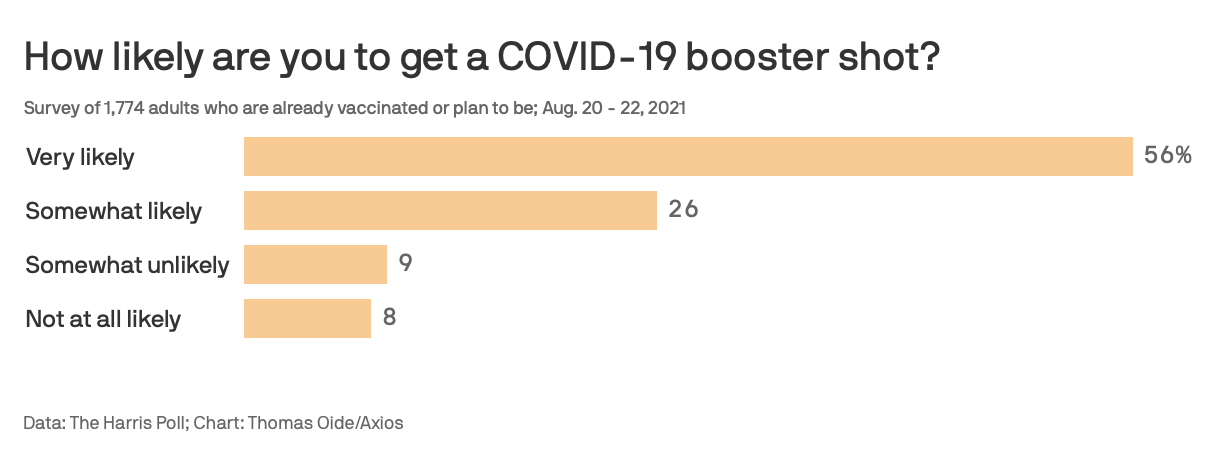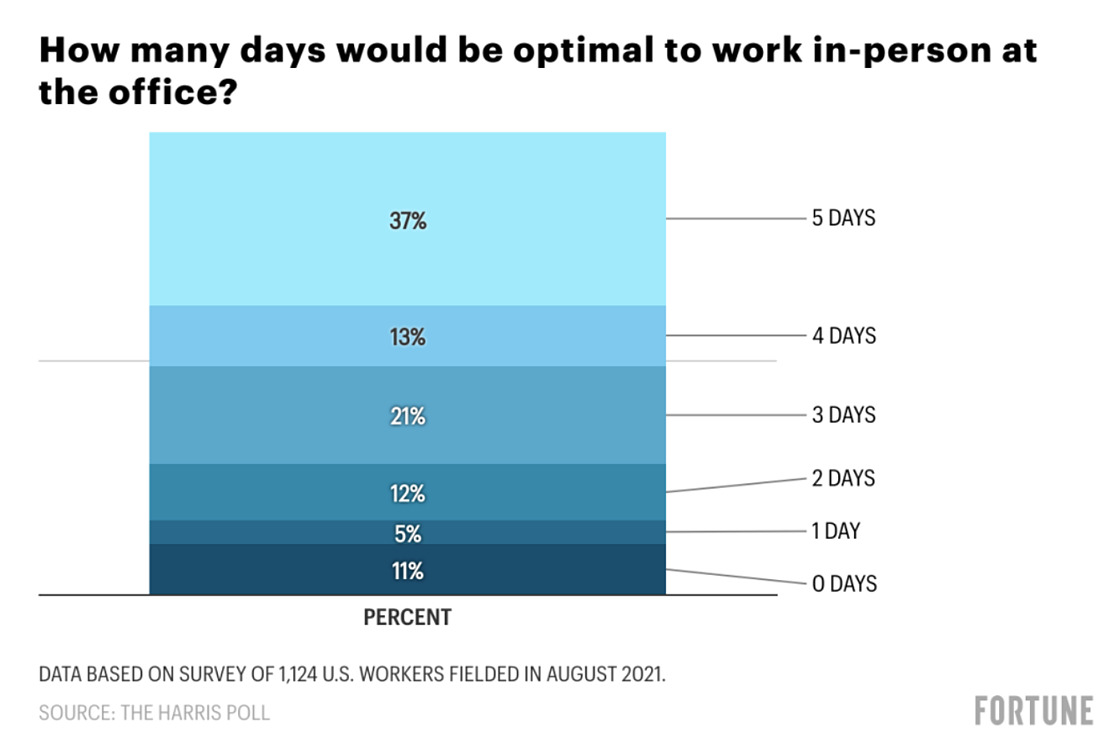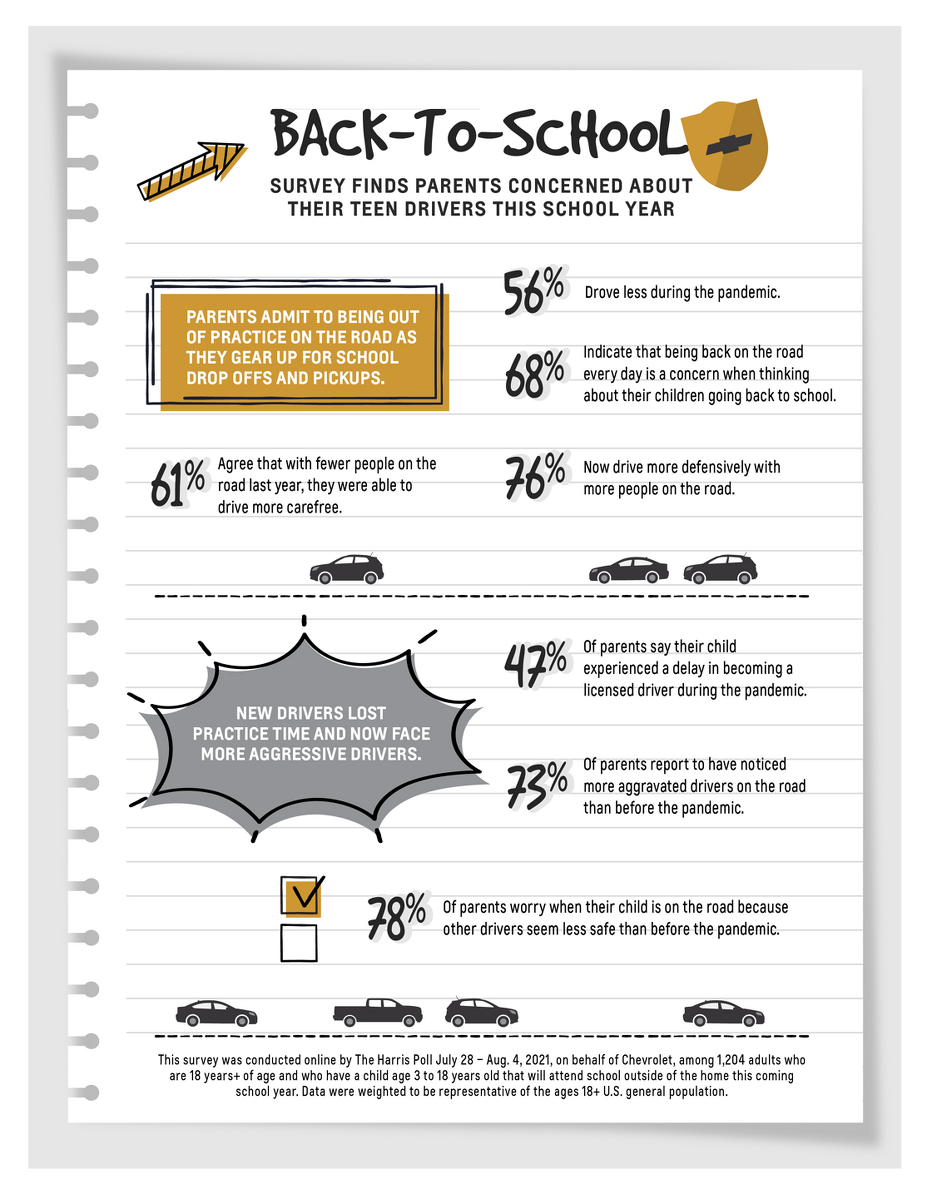Brief • 4 min Read

In The Harris Poll Tracker (Week 79) fielded August 27th to 29th, 2021 among 1,901 U.S. adults, we look at the FDA’s full approval for the Pfizer vaccine, an outlook on booster shots, how some remote workers are awaiting a return to the office, the pandemic’s impact on mood disorders, and how the pandemic disrupted teen driving.
As a public service, our team has curated key insights to help leaders navigate COVID-19. Full survey results, tables, and weekly summaries can be accessed for free at The Harris Poll COVID-19 Portal. We will continue to actively field on a regular cadence to track the shifts in sentiment and behaviors as the news and guidelines evolve.
Will Full FDA Approval Discourage Vaccine Hesitancy?
Last week, the FDA granted full approval for Pfizer-BioNTech’s COVID-19 vaccine as the Delta variant continues to surge across the country. Will this extra stamp of approval resonate with those still hesitant to get the shot? Here is what we found:
- Confidence Booster: A large majority (80%) of Americans say full approval gives them more confidence in the vaccine, including over half (57%) of those unvaccinated.
- Credibility: Trust in the FDA is high, with (79%) of Americans, including (53%) of those unvaccinated, saying the agency’s approval is trustworthy to guarantee the safety and effectiveness of the vaccine.
- Will it persuade those on the fence? Half (49%) of currently unvaccinated say they will now get vaccinated after full approval, similar to our findings from early June 2021, when we found just under half (47%) of the then-unvaccinated said it would make them more likely to get the shot once approved.
- But some are skeptical: Over 8 in 10 (86%) of vaccinated Americans say that unvaccinated people used the lack of full FDA approval as an excuse but will now find another reason to avoid vaccination.
- And two-thirds (66%) of all parents, and (42%) of unvaccinated parents, say it makes them more likely to vaccinate their children.
- Our friends at STAT explore why full FDA approval isn’t just a quick fix to vaccine hesitancy.
Takeaway: We have yet to see the full impact of the FDA decision on the vaccine rollout, but the approval does clear the way for employers and other organizations to mandate the vaccine. Reaching the remaining unvaccinated Americans will require a patchwork fix of persuasion, mandates, and other measures in addition to this boost of confidence from the government.
Americans Are On Board With Coronavirus Booster Shots: Axios-Harris Poll
The vast majority of Americans who are already vaccinated or plan to be vaccinated say they’re likely to get a coronavirus booster shot, according to our latest data shared exclusively with Axios. Here’s what else we found:
- People of color and younger Americans are particularly likely to say that the booster shot recommendation impacted their confidence in the vaccine they already received.
- Half of vaccinated white respondents said their confidence had been impacted, compared with two-thirds of Black (66%) and Asian/Pacific Islander (67%) respondents and (60%) of Hispanic respondents.
- Two-thirds of Gen Zers (68%) said their confidence had been impacted, a contrast with the (42%) of Boomers who said the same.
- A higher share of vaccinated older generations (88% Boomers, 82% Gen X) also said they’re likely to get a booster shot compared with (71%) of Gen Z.

Takeaway: Experts are divided on how warranted booster shots are for most Americans, but everyone thinks that persuading more people to get the first round of vaccines should be a top priority.
The Sweet Spot of Returning to the Office: Fortune-Harris Poll
Americans are gearing up for a hybrid work week this fall, with many companies planning to give employees the option of working some days in person and some remotely. The Harris Poll partnered with Fortune to talk to workers and understand what their optimal hybrid work week looks like. Here’s what we found:
- Professional workers prefer three days a week in the office, on average, with almost four in ten (37%) who want to return to the office full-time.
- Men want to be in the office an average of 3.5 days a week vs. 3.1 days among women.
- And Boomers in the workforce say they want to spend an average of 2.7 days in the office a week, while younger workers prefer 3.4 days in person.
- The New York Times writes more on the frustration some employees are feeling as their return to office continues to be delayed in response to the pandemic.

Takeaway: Most employers and employees know that office life will never be quite the same as it was pre-COVID, though what each company’s situation will look like is still being figured out. Despite what seems to be conventional wisdom, not all employees are happy with the shift to all remote and employers will need to listen to their concerns as well to foster a better workplace.
2021 Mood Disorder Survey: NAMI-Harris Poll
The pandemic has led many to be more open with others about their mental health, but this does not always translate to better outcomes. Harris Poll partnered with the National Alliance on Mental Illness (NAMI) to survey Americans about their perception and understanding of mood disorders. The full report can be downloaded here.
- General perceptions of mood disorders: Seven in 10 (70%) know mood disorders can affect a person their entire life, even if they get treatment, but (27%) of Americans believe that individuals with a mood disorder could just “snap out of it” if they tried.
- Living with a mood disorder: Half (50%) of Americans with a mood disorder report experiencing negative impacts on personal relationships and (61%) said that people treat them differently after they learn of their diagnosis.
- Treatment and support: Three-quarters (78%) of those with a mood disorder say it’s frustrating trying to find the right treatment and the top barriers to receiving desired services are being unsure of eligibility (48%), cost (41%), and being unsure about how to access the service (39%).
- Mental health today: Half (52%) say they have been more open with others about their mental health since the pandemic started, but (30%) say they are unable to get the support they need for their mental health during the pandemic.
Takeaway: The COVID-19 pandemic posed new challenges to mental health, but it has also increased openness. It also spurred the rise of telehealth, which may help mitigate access issues and close the gap in support.
Parents Are Back to Worrying as Kids Are Back to Driving: Chevrolet-Harris Poll
With the back-to-school season in full swing, we partnered with Chevrolet to survey parents of school-aged children to discover how the pandemic affected their driving skills and the new realities that teen drivers face. Here’s what we found:
- The pandemic impacted how often people were on the road, with (56%) of parents saying they drove less during the pandemic.
- Teen drivers were impacted by a different complication during the pandemic: Nearly half of parents with a driving-aged child say their child experienced a delay in becoming a licensed driver during the pandemic.
- Six in 10 (61%) of parents are concerned about their teen on the road because of lost practice time due to the pandemic.
- And nearly three-quarters (73%) of parents report to notice more aggravated drivers on the road than before the pandemic.

Takeaway: The pandemic caused a disruption in our daily lives as we put key milestones such as teen driving on pause as we adjusted to the new normal. Now, as consumers start to make up for lost time, brands have an opportunity to step in and help guide them through these challenges as we all get back to normal.
Subscribe for more Insights
Subscribe to our newsletter for the latest trends in business, politics, culture, and more.
Download the Data
This survey was conducted online within the U.S. by The Harris Poll from August 27 to 29, among a nationally representative sample of 1,901 U.S. adults.
Download
Subscribe for more Insights
Subscribe to our newsletter for the latest trends in business, politics, culture, and more.
Download the Data
This survey was conducted online within the U.S. by The Harris Poll from August 27 to 29, among a nationally representative sample of 1,901 U.S. adults.
DownloadRelated Content








